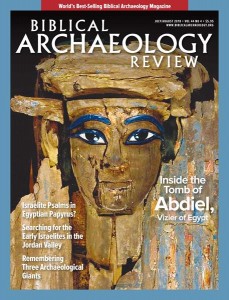First Person: The American Bible Society’s Electronic Inquisition

As a scholar, editor, and American, I value the rights of free speech afforded me by the First Amendment to the Constitution of the United States of America. I HATE censorship. Mind you, I’m not a fan of nonsensical, uninformed, illogical, hyperbolic drivel either. I like to see an exchange of ideas—a presentation of evidence—and then use my intellect to decide which argument makes the most sense based on the evidence. What’s more, BAR’s readers have come not only to expect, but to insist on this presentation of the evidence—from both the written records, including the Bible, and the archaeological data—to inform their decisions about history and the claims made by the Bible. This process lies at the heart of BAR.
Then came the internet. One of the internet’s revolutionary aspects was that it democratized information, allowing anyone with a domain name to publish content online. This is not always a good thing. Some sites are full of bad science and false claims, while others are credible sources of reliable information. And while the credible sites gradually separated from the less-than-credible ones, something initially unforeseeable happened: The internet began to run out of practical domain names.
Already a library member? Log in here.
Institution user? Log in with your IP address.

